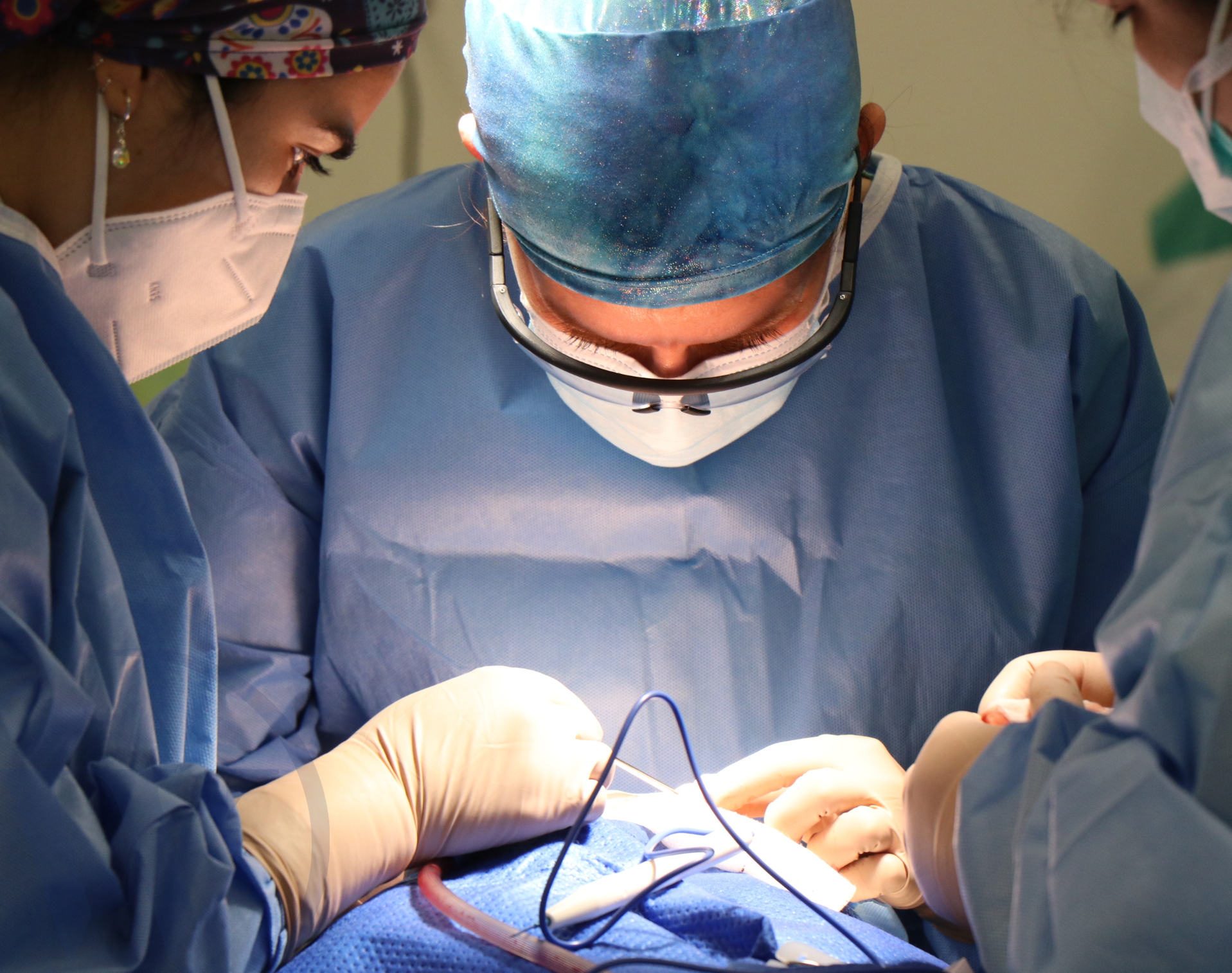Frenectomy
A frenectomy is a simple procedure that’s performed to release a tongue tie to improve a baby’s ability to feed effectively.

What is a frenectomy?
A tongue tie is where the lingual frenulum, the thin piece of skin connecting the tongue to the bottom of the mouth, is shorter or tighter than usual. It's most commonly identified in babies as, while for some it doesn’t cause any problems, it can affect how easily a baby feeds from the breast or a bottle.
A frenectomy is the gold standard treatment for a tongue tie (ankyloglossia). Anyone of any age can have a frenectomy to treat a tongue tie. At Welbeck, this procedure is performed on children by our expert paediatric consultants. Adults who require a frenectomy will be seen by one of our maxillofacial consultants.
It’s a quick and simple procedure that releases the lingual frenulum, allowing your baby to feed more easily. It also helps reduce any pain or discomfort a mother may feel when breastfeeding.
Why is a frenectomy necessary?
Some babies show no signs of having a tongue tie, so treatment is not needed.
However, treatment is required if your baby finds it difficult to breastfeed or bottle-feed. Signs that your baby may have a tongue tie include:
- difficulty latching or staying attached to the breast or bottle teat
- long feed times and needing to be fed very frequently
- dribbling a lot during feeds
- coughing, choking or making clicking noises when feeding
- taking only a small amount of milk at each feed
- losing weight or struggling to gain weight
Breastfeeding may also feel uncomfortable or painful for a mother and you may have sore nipples and swollen breasts.
In adults, the primary sign of a tongue tie is restricted tongue movement – you may not be able to move your tongue from side to side, lift it up or stick it out, for example.
What does a frenectomy involve?
The steps of a frenectomy procedure are the same for babies and adults.
First, a local anaesthetic will be injected under the tongue to numb the area and, in some cases, sedation is also given.
Your consultant will then use surgical scissors, a scalpel or a laser to cut through and release the frenulum.
From receiving the anaesthetic to the frenulum being released, a frenectomy procedure takes no more than 30 minutes.
Risks of a frenectomy
Frenectomy is considered to be a very safe treatment. However, like any surgery, it carries some potential side effects, including discomfort, bleeding, and a small risk of infection or scarring. In very rare cases, damage to salivary glands or nerves, or reattachment of the frenulum, can occur.
How to prepare for a frenectomy
A frenectomy is a very straightforward procedure and does not require any preparation.
Frenectomy aftercare and recovery
After the procedure, the cut tissue will take a couple of weeks to heal completely. Feeding your baby straight after the procedure can provide comfort and also stop any bleeding. Older children and adults can take over-the-counter painkillers to soothe any discomfort.
Adults can also do a saltwater rinse or use an antiseptic mouthwash to help keep the wound clean while it heals.
Tongue tie surgery cost
Waiting for an appointment to have a frenectomy procedure can be very frustrating, especially if you have a baby who is struggling to feed. At Welbeck, we pride ourselves on our ability to provide patients with an initial consultation and procedure appointment within days of their enquiry.
At Welbeck, our frenectomy service includes an initial consultation, frenectomy procedure and follow-up appointment. Please get in touch with our Oral & Facial Health centre for pricing.
Why choose Welbeck?
At Welbeck, our maxillofacial specialists are experts in their field and are dedicated to providing world-class care to every patient.
With access to colleagues across other specialities, our consultants are also able to refer within the Welbeck ecosystem if needed to ensure you receive the best possible treatment as quickly as possible, all under one roof.
All appointments, testing, treatment, and follow-up appointments take place within our state-of-the-art facilities, enabling us to deliver accurate diagnostics and advanced treatments.
Book your private consultation
Your health is important to us, so we strive to offer same-day appointments whenever possible.
Our consultants are recognised by the major health insurance companies. If you have private health insurance, your treatment at Welbeck can begin once you have obtained authorisation. We also provide care to self-paying patients. Learn more about the different payment options at Welbeck.
FAQs
Are tongue ties genetic?
Yes, tongue-ties have been associated with certain genetic factors, so they can run in families.
What kind of doctor treats tongue tie?
At Welbeck, a frenectomy on a child is performed by one of our specialist paediatric consultants. Tongue ties in adults are treated by our maxillofacial specialists.
How many people have a tongue tie?
Tongue ties are very common, with approximately 1 in 10 babies born with one. Around half of those babies experience a feeding difficulty, so they require treatment.
How often do tongue ties reattach?
Occasionally, a tongue tie that has been treated can grow back or reattach – this happens in around 3% to 5% of babies.
